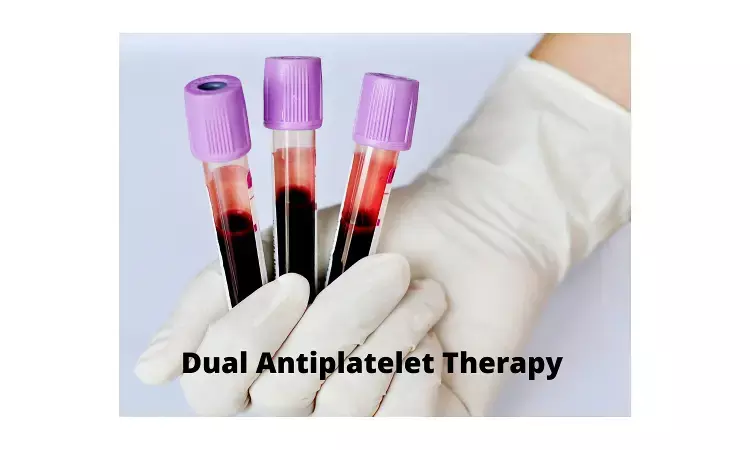- Home
- Medical news & Guidelines
- Anesthesiology
- Cardiology and CTVS
- Critical Care
- Dentistry
- Dermatology
- Diabetes and Endocrinology
- ENT
- Gastroenterology
- Medicine
- Nephrology
- Neurology
- Obstretics-Gynaecology
- Oncology
- Ophthalmology
- Orthopaedics
- Pediatrics-Neonatology
- Psychiatry
- Pulmonology
- Radiology
- Surgery
- Urology
- Laboratory Medicine
- Diet
- Nursing
- Paramedical
- Physiotherapy
- Health news
- Fact Check
- Bone Health Fact Check
- Brain Health Fact Check
- Cancer Related Fact Check
- Child Care Fact Check
- Dental and oral health fact check
- Diabetes and metabolic health fact check
- Diet and Nutrition Fact Check
- Eye and ENT Care Fact Check
- Fitness fact check
- Gut health fact check
- Heart health fact check
- Kidney health fact check
- Medical education fact check
- Men's health fact check
- Respiratory fact check
- Skin and hair care fact check
- Vaccine and Immunization fact check
- Women's health fact check
- AYUSH
- State News
- Andaman and Nicobar Islands
- Andhra Pradesh
- Arunachal Pradesh
- Assam
- Bihar
- Chandigarh
- Chattisgarh
- Dadra and Nagar Haveli
- Daman and Diu
- Delhi
- Goa
- Gujarat
- Haryana
- Himachal Pradesh
- Jammu & Kashmir
- Jharkhand
- Karnataka
- Kerala
- Ladakh
- Lakshadweep
- Madhya Pradesh
- Maharashtra
- Manipur
- Meghalaya
- Mizoram
- Nagaland
- Odisha
- Puducherry
- Punjab
- Rajasthan
- Sikkim
- Tamil Nadu
- Telangana
- Tripura
- Uttar Pradesh
- Uttrakhand
- West Bengal
- Medical Education
- Industry
Dual Antiplatelet therapy much efficient in treating Cardiovascular death: MASTER DAPT Trial

Cardiac death is greater burden on global health. Fatal heart diseases involve formation of clots in major blood vessels, antiplatelet medicines can stop blood clots from forming. Anticoagulant therapy has established its place in reducing systemic thrombotic events in patients with atrial fibrillation. Efficacy of anticoagulant therapy has established its place in reducing systemic thrombotic events in patients with atrial fibrillation.
The MASTER DAPT trial unravels that abbreviated antiplatelet therapy was non-inferior to standard antiplatelet therapy with regard to net adverse clinical events. The trial evaluated abbreviated antiplatelet therapy compared with standard antiplatelet therapy among patients who underwent percutaneous coronary intervention (PCI) with a biodegradable-polymer sirolimus-eluting stent.
The Findings are published in American College of Cardiology.
Among patients with acute or chronic coronary artery disease who underwent percutaneous coronary intervention within the last 30-44 days and were at increased bleeding risk, abbreviated DAPT was non-inferior to standard DAPT regarding net adverse clinical events and major adverse cardiac or cerebral events.
The results of the trial were
• Net adverse clinical events (all-cause mortality, MI, stroke, or major bleeding) was 7.5% in the abbreviated therapy group compared with 7.7% in the standard therapy group (p < 0.001 for non inferiority)
• Major adverse cardiac or cerebral events (all-cause mortality, MI, or stroke) was 6.1% in the abbreviated therapy group compared with 5.9% in the standard therapy group (p = 0.001 for non inferiority)
• Major or clinically relevant non major bleeding was 6.5% in the abbreviated therapy group compared with 9.4% in the standard therapy group (p < 0.001 for superiority)
Trial concluded that abbreviated DAPT was superior to standard antiplatelet therapy regarding major or clinically relevant non-major bleeding. These results are specific to patients who received a biodegradable-polymer sirolimus-eluting stent. The results were the same among those with and without an indication for oral anticoagulation therapy.
Reference: https://www.acc.org/Latest-in-Cardiology/Clinical-Trials/2021/08/25/23/38/MASTER-DAPT
Medical Dialogues consists of a team of passionate medical/scientific writers, led by doctors and healthcare researchers. Our team efforts to bring you updated and timely news about the important happenings of the medical and healthcare sector. Our editorial team can be reached at editorial@medicaldialogues.in.
Dr Kamal Kant Kohli-MBBS, DTCD- a chest specialist with more than 30 years of practice and a flair for writing clinical articles, Dr Kamal Kant Kohli joined Medical Dialogues as a Chief Editor of Medical News. Besides writing articles, as an editor, he proofreads and verifies all the medical content published on Medical Dialogues including those coming from journals, studies,medical conferences,guidelines etc. Email: drkohli@medicaldialogues.in. Contact no. 011-43720751


